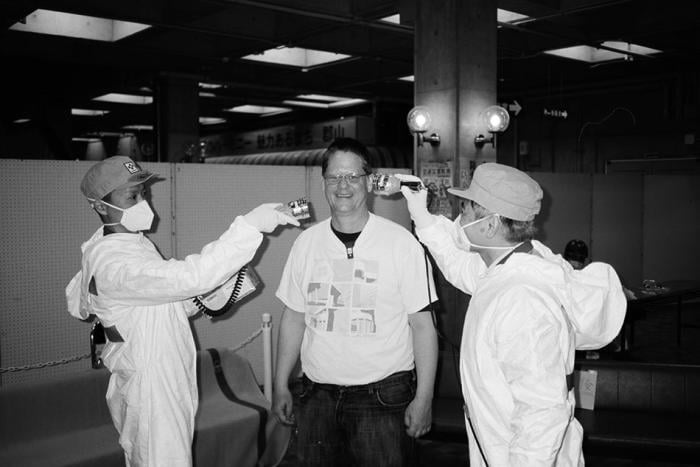Mireille Silcoff’s first collection of short stories is so pleasingly intimate, her writing possessed with such a vital attention to detail, that it’s hard to believe these tales are all strung together by trauma. The book, Chez L’arabe (Anansi, $19.95, pb), connects characters touched by disease, suicide, Alzheimer’s—to name but three—and, most importantly, focuses on how those characters attempt to move on from the shock and awe they’ve lived through.
It all stems from Silcoff’s own experience. About a decade ago, while the journalist and author was dividing her time between Montreal and Toronto, Silcoff found herself suddenly afflicted with a mysterious ailment that left her initially dizzy and ultimately bedridden.
The mystery would continue for several years, as Silcoff navigated her way through a gaggle of medical experts both in Canada and the US, struggling to figure out precisely what was wrong. The answer was something known as spontaneous cerebrospinal fluid leak, a chronic, genetic illness—which, simply put, meant that as the fluid left her head, her brain would rest directly on her skull. The result was agony.
This came as a jarring blow to Silcoff, a prolific contributor to a number of magazines and newspapers, founder of Guilt & Pleasure Quarterly, and author of books on youth culture. (Disclosure: I worked with Silcoff at the now defunct Montreal Mirror, where she was the music editor and I was film editor.)
It’s impossible not to be filled with admiration for Silcoff as you devour her new collection. She’s taken what was obviously a painful and precarious situation and transformed it into a compassionate book about people driven to extremes by their circumstances. It’s touching without ever veering into sentimentality.
Silcoff, 41, now writes a regular column for the National Post and contributes to the New York Times Magazine. We sat down to talk Chez L’arabe in a downtown Montreal restaurant.
I’m fascinated by books that are borne out of illness. Were there any other books you thought of as models while you were working on this Chez L’arabe?
It’s hard to say. When I was seriously ill, my capacity for being moved by something was increased a thousand times over. I was like a giant wound, flypaper for feeling, because I was in constant, outrageous pain. Watching a tree outside my window flutter in the wind felt like an activity so beautiful, so immersive, it could bring tears. I would think things like “this moment is so perfect; God could only have conspired to get me here.”
So as you can see: some pretty magical thinking. I reread many of the books I had liked when I was younger. I have always been a true, starry-eyed fan of Alice Munro’s, and Margaret Atwood’s short stories have left a huge mark on me. Since my book has come out, many people have had discussions with me about Mavis Gallant, but interestingly, I found Gallant to be a bit impenetrable when I was ill. There is a toughness to Gallant—a woman-in-a-man’s-world stance —that was perhaps too hard for me at the time. I needed the open-heart emotional surgery of Munro.
As for writing about illness, I felt a lot of affinity with what F. Scott Fitzgerald wrote in The Crack Up, and the essays he wrote for Esquire in the mid-1930s. You get the impression that he was embarrassed to write those essays, about what might have then been termed his nervous breakdown, but that he had no choice; he just had to do it. There are so many lines in those essays I felt consensus with in a passionate way. I still remember some, and not even the most remarkable: “I had a strong sudden instinct I had to be alone”; “and then suddenly, surprisingly I got better/ and then I cracked like an old plate as soon as I heard the news.” These were things I could relate to.
When I was seriously ill, my capacity for being moved by something was increased a thousand times over. I was like a giant wound, flypaper for feeling, because I was in constant, outrageous pain.
There’s a theme that links your stories together, yet they’re all distinct. How did you choose a style for each tale?
The styles probably chose me more than me them. I would decide I wanted to write a story about something—usually a feeling, an atmosphere. With me it’s never a plot thing, and then would write something the size of a novella and chip it down, sometimes over many months. Also, because I am relatively new to fiction, I still have the luxury of finding it easy to try things out. In non-fiction I have probably petrified into more or less a single style—more comfortable, if not always as exciting.
Having known you for a long time, I can tell that illness has changed you in a very basic way. How do you feel it’s changed you as a writer?
I used to have my claws out all the time. I would sit down to write a story and think, “now what can I say here that nobody else would dare say?” I did a lot of profile writing, which is a genre of journalism I am not sure isn’t immoral in a very basic way. You try to make your subject tell you everything in various ways and they trust you and are generous and then, if you want to write the best, most exciting piece, you use all the info you know they would rather not have people read. I am with Janet Malcolm on this one: there is a built-in dastardliness. So for me, that became something to think about a lot. I have written profiles since getting back on my feet and while I am sure my subjects like them more, I am also sure my editors like them less.
Journalism is also a funny fit for me. Sometimes writing a feature can feel like pulling teeth. I have always thought of fact as the thing I have to get through in order to write about feeling. I remember once telling Sarmishta Subramanian, a longtime newspaper and magazine editor of mine, an editor who has influenced my writing more than any other, that I wish I could do magazine stories that were all atmosphere and emotion. When I began writing fiction, I saw I could do pretty much that. But before my illness, I always thought I was a lifer in non-fiction. Short stories, a novel, were not things I had then aspired to.
What would you say the biggest shift is, from journalist to fiction writer?
Time is a big one. There is journalism time and there is fiction time and fiction time, for me, is much slower. There are some stories in Chez L’arabe that took me a year until I felt their were finished. That could never happen in journalism. Deadlines and timeliness aside, you probably wouldn’t write a good piece—it would get all overwritten and weird, and readers would get that “why am I reading this in a newspaper?” feeling.
Have people close to you been recognizing themselves in this collection?
Oh yes. But everyone has been wonderful. I remember once hearing Robertson Davies telling an interviewer that he’d begun writing characters more closely based on people from his life. The interviewer asked “what changed?” and Davies said, matter-of-factly, “well, people have died.” I wondered before Chez L’arabe was published whether every family relationship I had was about to change. I come from a very divorced clan and so I probably have some fear dragged over from childhood of people saying “ok, I am done with this person now!” But nothing of the sort happened. Weirdly, I have had some friends and family complain that they are not in the book. I have written a memoir column in the National Post for many years now, so it’s possible that those near and dear to me have gotten used to being material!
Your book is getting comparisons to a lot of heavyweights—including Mordecai Richler, who you acknowledge you haven’t even read. Do any of these make you uncomfortable?
Ach, I just don’t drink the Kool-Aid. Nobody who is compared to their heroes should. Plus I know how genres and lineages can be whipped up by a good journalist or critic out of little more than dust and air. I’ve done lots of that myself. I keep my head down, I keep on writing. And by the way, my bedside table is currently stacked with Richler novels; a blind spot I am in the happy process of correcting.






